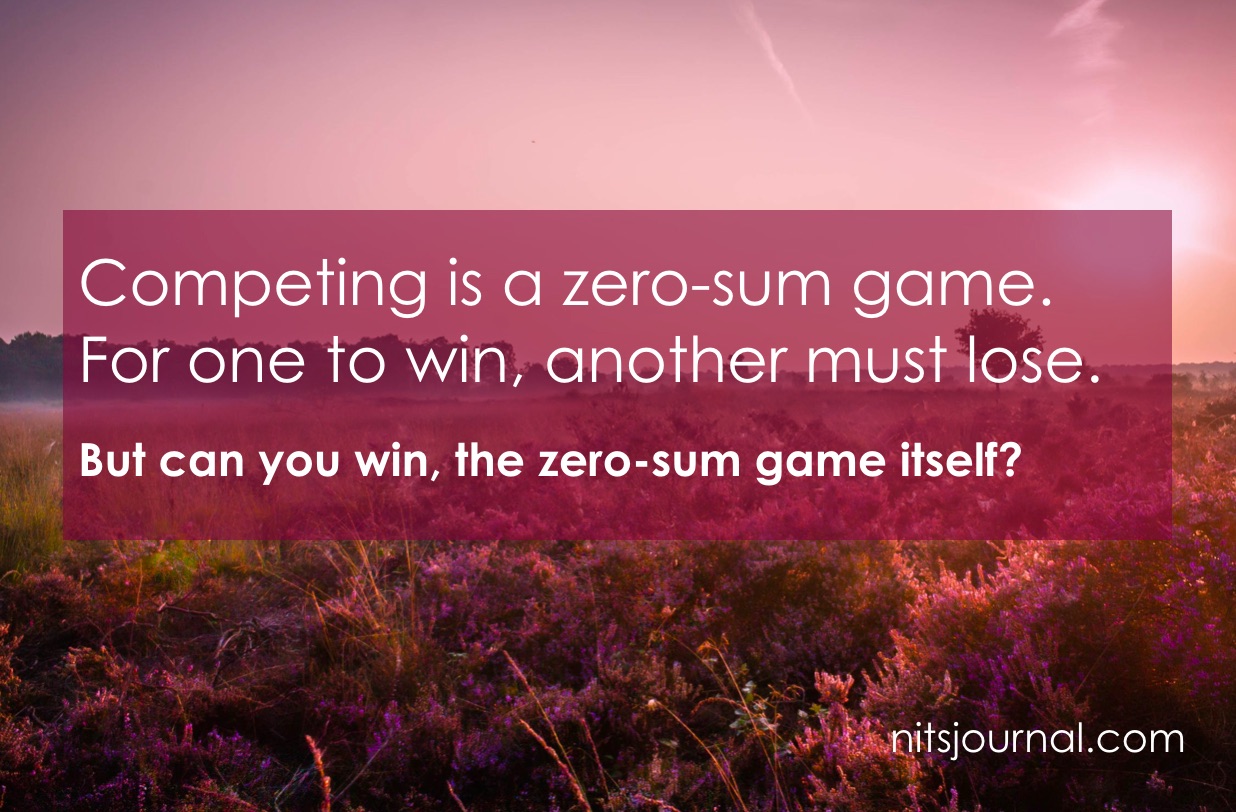Competing is a zero-sum game. For one to win, another must lose. In other words, the cost of winning is hurting another.
Then why do we, as human beings have the natural tendency to want to compete with our peers. Why do we want to win and what do we get from it?
Competing as defined by psychology.
The act of competing and besting your peers is called ‘extrinsic incentive’. It’s like getting a reward for a job well done.
From olympics to getting the promotion at work instead of your co-workers, to simply winning an argument with your spouse, you can see that humans are wired to compete.
When we win, we feel elated, and motivated to earn that reward, that feeling of joy again. So we compete again, with more focus to win the next rounds.
When we lose, we feel disappointed, upset, angry and embarrassed. It’s like a punishment. And to avoid that bad feeling, we become even more competitive to ensure we win the next time. Both wins and loses is to drive us to become better.
While the natural tendency to want to compete and win your peers, siblings, spouse, co-workers and what not, is a type of survival instinct; (since it drives us to do better, to want the next win, again and again and again)….. it can be very damaging if it’s not kept in check.
For adults, rationalising losing to peers is one of the natural ways we development our minds, and how we move towards self-growth and actualisation. When we’re at peace with losing some, we become more at peace with ourselves, realising that every individual on this planet is unique.
There is only one of you, and essentially, no one can compete with that.

The healthy competition.
Our extrinsic incentives are moderated and balanced out by our intrinsic incentives. In other words, that sense of wanting to do good (winning is a zero sum game). That is what perhaps tells us that it’s okay to lose. We can win another time. Just maybe your peer might need the win more than you. Or they might not even be competing with you, so no need to fuss.
Individuals with a healthy competitive mindset have matured enough to know that losing is not all there is to life. It’s okay to lose face, to laugh at yourself.
The unhealthy competition.
In unhealthy competitions, the individual’s mind and drive is so set on winning that he/she does whatever it takes.
When we talk about child psychology, this unbalanced learning about competing and wanting to win is one of the sources of passive-aggressive behaviour that manifests itself in adulthood.
Ending words – my 2 cents.
At the end of the day, how we take on wins and loses is completely up to us. While, yes, humans have a natural tendency to want to compete and win, humans are also born with freewill.
You can choose how you want to react to any competition you face in your life. We’re all in it for the long haul. Winning today, is just today, it never guarantees winning 10 years down the line. When you play the long game, just maybe you can be more at peace with yourself.
